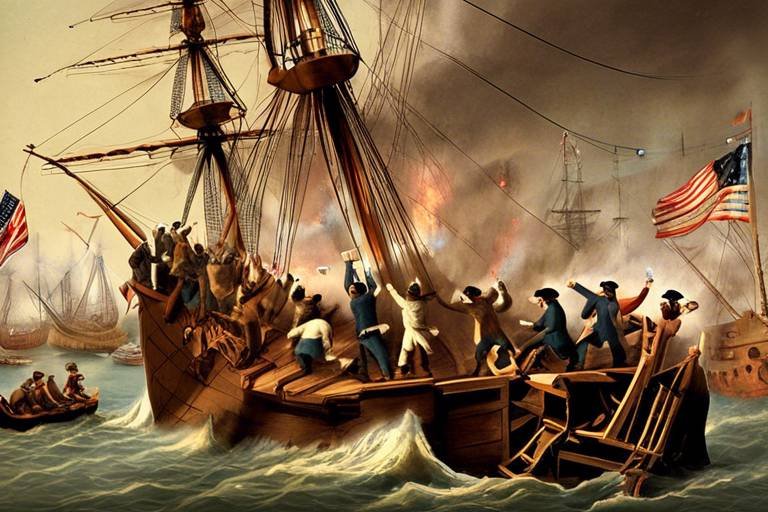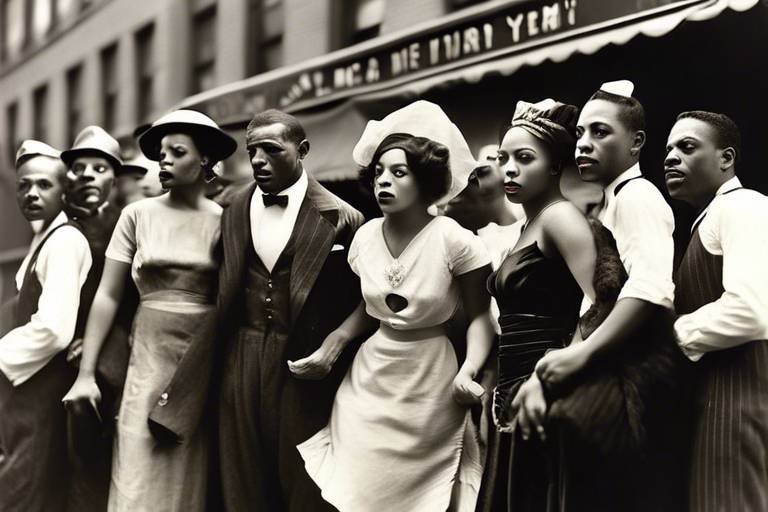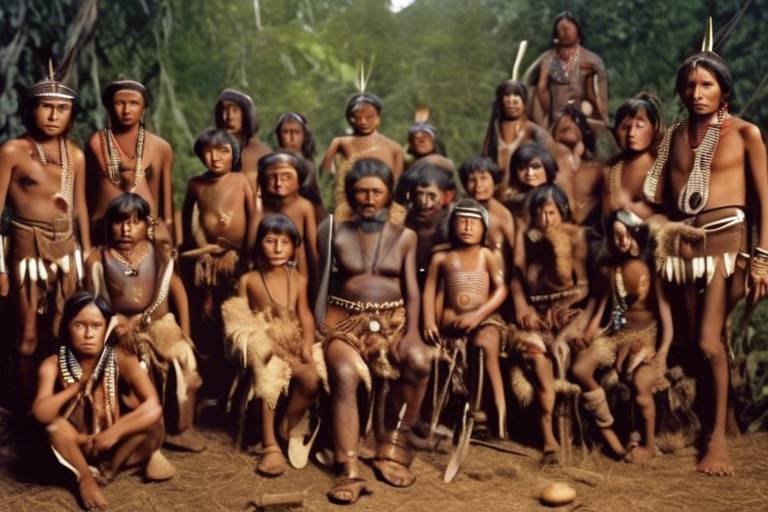The History of Colonial India - Key Events and Figures
Colonial India's history is a tapestry woven with the threads of significant events and the presence of influential figures who left an indelible mark on the subcontinent. From the early days of European exploration to the tumultuous struggle for independence, the journey of Colonial India is a saga of resilience, resistance, and resilience.
The arrival of European powers in India marked a turning point in the country's history. The British East India Company and the Portuguese were among the first to establish their presence, setting the stage for centuries of colonial rule and influence.
One of the most pivotal moments in Colonial India's history was the transition to direct British rule, known as the British Raj. This period saw the consolidation of British authority and the emergence of resistance movements, culminating in the Indian Rebellion of 1857, a watershed moment in the fight against colonial oppression.
At the forefront of India's struggle for independence was Mahatma Gandhi, a beacon of nonviolent resistance and civil disobedience. Gandhi's leadership inspired millions to join the movement against British colonial rule, ultimately leading to India's independence in 1947.
The partition of India in 1947, which created the separate nations of India and Pakistan, was a seismic event that reshaped the region's geopolitical landscape. The division led to mass migrations, communal violence, and the birth of two nations with distinct identities.
Colonialism left a profound impact on Indian society, bringing about significant social, economic, and cultural changes. The introduction of new technologies, education systems, and administrative structures transformed the fabric of Indian life, leaving a lasting legacy that continues to shape the country to this day.
The Indian National Congress played a crucial role in advocating for Indian rights and independence during the colonial period. From its formation to its evolution into a major political force, the Congress party was instrumental in shaping the course of India's history and its fight against colonial oppression.
The legacy of colonial rule continues to reverberate in modern India, influencing the country's political institutions, economy, social structures, and cultural identity. The scars of colonialism run deep, shaping the nation's trajectory and collective memory in the post-independence era.
Exploring the lives and contributions of key figures in Colonial India offers a glimpse into the diverse tapestry of individuals who played a pivotal role in shaping the country's history. From Jawaharlal Nehru's vision of a modern India to Rabindranath Tagore's artistic legacy and Rani Lakshmi Bai's fearless resistance, these figures embody the spirit of Colonial India's struggle and resilience.

Arrival of European Powers
When exploring the history of Colonial India, one cannot overlook the pivotal moment of the arrival of European powers. This marked the beginning of a significant era that would shape the course of Indian history for centuries to come. European powers, including the British East India Company and the Portuguese, made their initial encounters with the Indian subcontinent, leading to the establishment of control and the eventual colonization of the region.
The British East India Company, in particular, played a crucial role in the colonization of India. Initially arriving in search of trade opportunities, the company gradually expanded its influence and control over Indian territories. Through strategic alliances and military conquests, the British East India Company established a strong foothold in India, laying the foundation for British colonial rule in the subcontinent.
Similarly, the Portuguese were among the first European powers to set foot in India, with Vasco da Gama's historic voyage in 1498 opening the doors to European exploration and trade in the region. The Portuguese established trading posts along the Indian coast, creating a network of commercial interests that would later contribute to the broader colonization efforts of European powers in India.
The arrival of European powers in India not only brought about economic changes through trade and commerce but also had profound social and cultural impacts on Indian society. The interactions between Europeans and Indians led to the exchange of ideas, technologies, and customs, shaping the cultural landscape of colonial India in ways that continue to resonate in the present day.
Overall, the arrival of European powers marked a significant turning point in Indian history, setting the stage for centuries of colonial rule and shaping the trajectory of India's journey towards independence. The legacies of these early encounters continue to influence India's modern identity and its complex relationship with its colonial past.

British Raj and Indian Rebellion of 1857
The British Raj in India marked a significant period of direct British rule following the dissolution of the British East India Company in the aftermath of the Indian Rebellion of 1857. This rebellion, also known as the Sepoy Mutiny, was a watershed moment in Indian history, symbolizing the resistance of Indian soldiers against British colonial rule.
During the British Raj, India experienced profound political, social, and economic changes as the British government took control of the administration and resources of the subcontinent. The policies implemented by the British had far-reaching consequences on Indian society, leading to the exploitation of resources and the suppression of local cultures.
The Indian Rebellion of 1857, which erupted due to various factors including discontent among Indian soldiers, religious beliefs, and economic grievances, posed a significant challenge to British authority. The rebellion spread across northern and central India, resulting in fierce battles and widespread violence.
Despite the initial success of the rebels in capturing key cities such as Delhi and Lucknow, the British ultimately quelled the uprising through brutal force and reasserted their control over India. The aftermath of the rebellion saw the dismantling of the Mughal Empire and the formal transfer of power to the British Crown.
The British Raj, which lasted until India gained independence in 1947, left a lasting impact on Indian society, economy, and governance. The legacy of this period continues to shape modern India, influencing political structures, social hierarchies, and cultural practices.
Key figures such as Queen Victoria, Lord Dalhousie, and Bahadur Shah II played pivotal roles during this tumultuous period, embodying the complexities of colonial rule and Indian resistance. Their actions and decisions during the British Raj era have left a lasting imprint on the historical narrative of India's struggle for independence.

Mahatma Gandhi and the Independence Movement
Mahatma Gandhi, also known as the "Father of the Nation," played a pivotal role in India's struggle for independence through his philosophy of nonviolent resistance, which he termed Satyagraha. Gandhi's approach emphasized the power of truth and love in confronting oppression and injustice, inspiring millions to join the fight for freedom.
His civil disobedience campaigns, including the famous Salt March in 1930, aimed to challenge British colonial policies and unite the Indian population in a peaceful protest against unjust laws. By advocating for self-reliance and self-governance, Gandhi sought to empower the Indian people to assert their rights and dignity.
Through his leadership, Gandhi mobilized people from all walks of life, transcending barriers of caste, creed, and religion. His commitment to ahimsa (nonviolence) and satyagraha inspired future generations of freedom fighters and civil rights activists around the world.
Gandhi's vision of a united, independent India based on unity in diversity resonated deeply with the Indian populace, fueling the momentum of the independence movement. His principles of tolerance, compassion, and inclusive governance continue to guide India's democratic ethos and national identity.

Partition of India and Independence
Partition of India and Independence marked a monumental moment in the history of Colonial India, forever altering the course of the subcontinent. In 1947, British India was divided into two separate nations, India and Pakistan, based on religious lines, primarily Hindu and Muslim populations. This separation was a result of mounting tensions between different religious communities and the inability to find a unified solution for governance.
The partition led to one of the largest mass migrations in history, with millions of people displaced and forced to relocate to either India or Pakistan. The communal violence that erupted during this period resulted in widespread bloodshed and atrocities, leaving a deep scar on the collective memory of both nations.
Amidst the chaos of partition, leaders like Mahatma Gandhi and Jawaharlal Nehru worked tirelessly to maintain peace and unity among the people. Their efforts, although commendable, could not prevent the tragic consequences of the partition, which continue to impact the region to this day.
The independence of India and Pakistan brought about a sense of freedom and self-governance, but it also laid the foundation for decades of political tensions and conflicts between the two nations. The partition not only divided the land but also the people, creating a legacy of animosity and unresolved issues that persist in the present day.

Impact of Colonialism on Indian Society
Colonialism in India had a profound impact on its society, bringing about significant changes across various aspects of life. One of the key impacts was the introduction of new technologies and infrastructure by the European powers. The British, in particular, implemented modern transportation systems such as railways and telegraph lines, which revolutionized communication and transportation in the subcontinent. These advancements not only facilitated the movement of goods and people but also connected different regions of India, fostering a sense of unity.
Furthermore, colonial rule led to the establishment of a formal education system in India. The British introduced Western education, which played a crucial role in shaping the intellectual landscape of the country. Indian students were exposed to new ideas, scientific knowledge, and literature from the West, leading to the emergence of a class of educated elites who would later become instrumental in the independence movement.
Another significant impact of colonialism on Indian society was the restructuring of the economy. The British implemented policies that favored the extraction of resources from India to benefit the British Empire. This exploitative economic system led to the impoverishment of many Indians and the decline of traditional industries. The introduction of cash crops and the transformation of agricultural practices also had far-reaching consequences on the livelihoods of Indian farmers.
Moreover, colonialism had a profound social impact on Indian society, as it brought about changes in social hierarchies and norms. The British implemented laws and administrative systems that altered traditional social structures, leading to the erosion of indigenous power structures. The caste system, which had been a defining feature of Indian society for centuries, was also influenced by colonial policies and practices.
In conclusion, the impact of colonialism on Indian society was multifaceted, encompassing technological advancements, educational reforms, economic restructuring, and social transformations. These changes laid the foundation for the modernization of India but also had lasting repercussions that continue to shape the country's social fabric today.

Role of Indian National Congress
The Indian National Congress (INC) played a crucial role in the fight for Indian independence from British colonial rule. Founded in 1885, the INC initially aimed to serve as a platform for educated Indians to voice their concerns and engage with the British authorities on issues affecting the Indian population. Over time, under the leadership of figures like Dadabhai Naoroji and A.O. Hume, the INC evolved into a political organization advocating for greater Indian representation in governance and administrative matters.
One of the key functions of the Indian National Congress was to raise awareness about the injustices of colonial rule and mobilize public opinion against British policies that were detrimental to Indian interests. Through petitions, resolutions, and public campaigns, the INC sought to challenge the authority of the British government and push for reforms that would benefit the Indian populace.
Furthermore, the Indian National Congress provided a platform for emerging leaders like Mahatma Gandhi and Jawaharlal Nehru to shape the direction of the independence movement. Gandhi's philosophy of nonviolent resistance found resonance within the INC, leading to mass movements such as the Non-Cooperation Movement and the Salt March, which galvanized public support and challenged British hegemony.
As the INC grew in influence and membership, it became a formidable force in Indian politics, representing diverse interests and ideologies within the nationalist movement. The organization's efforts culminated in the pivotal role it played in negotiations with the British government for India's independence, leading to the transfer of power in 1947 and the birth of a sovereign Indian nation.
The legacy of the Indian National Congress continues to endure in independent India, where it remains a prominent political party advocating for secularism, social justice, and democratic values. Despite facing challenges and criticism over the years, the INC's historical significance as a catalyst for India's freedom struggle and its contributions to the shaping of the nation's political landscape remain undeniable.

Legacy of Colonial Rule in Modern India
Exploring significant events and prominent figures that shaped Colonial India's history, from the arrival of European powers to the struggle for independence.
The initial encounters and establishment of control by European powers such as the British East India Company and the Portuguese.
The transition to direct British rule, the impact of the British Raj, and the pivotal Indian Rebellion against British authority.
Gandhi's nonviolent resistance, civil disobedience campaigns, and leadership in India's fight for independence from British colonial rule.
The division of British India into India and Pakistan in 1947, leading to mass migrations, communal violence, and the birth of two new nations.
The social, economic, and cultural changes brought about by colonial rule, including the introduction of new technologies and education systems.
The formation of the Indian National Congress, its role in advocating for Indian rights, and its evolution into a major political force.
The legacy of colonial rule in modern India is profound and multifaceted. The impact of British colonialism continues to shape various aspects of Indian society, politics, and culture even after gaining independence. One significant aspect of this legacy is the political institutions established during the colonial period, which have influenced the structure of governance in modern India. The British introduced administrative systems and bureaucratic frameworks that have endured over time, leaving a lasting imprint on the country's governance.
Furthermore, the economic legacy of colonial rule is evident in India's economy today. The British colonial administration exploited India's resources and established economic policies that favored British interests, leading to long-term repercussions on India's economic development. The patterns of land ownership, industrialization, and trade established during colonial times continue to impact India's economic landscape.
Socially, colonialism left a complex legacy on Indian society. The British colonial rulers implemented social reforms, education systems, and legal structures that have influenced social dynamics in modern India. The caste system, which existed long before colonial rule, was further entrenched and manipulated by the British administration, leading to social stratification and inequalities that persist today.
Culturally, the impact of colonialism is visible in various aspects of Indian culture, including language, literature, architecture, and art. The British introduced Western cultural influences that have since been integrated into India's diverse cultural tapestry. The fusion of Indian and Western cultural elements has created a unique cultural identity that reflects the country's colonial past.
Exploring the lives and contributions of influential figures such as Jawaharlal Nehru, Rabindranath Tagore, and Rani Lakshmi Bai during the colonial period.

Key Figures in Colonial India
During the colonial period in India, several key figures played crucial roles in shaping the country's history and influencing the course of events. These individuals made significant contributions to various aspects of society, politics, and culture, leaving a lasting impact on the nation's trajectory. Among the notable figures of Colonial India were Jawaharlal Nehru, Rabindranath Tagore, and Rani Lakshmi Bai.
Jawaharlal Nehru, a prominent leader of the Indian independence movement, served as the first Prime Minister of independent India. Nehru was a key figure in shaping the country's foreign policy and economic development strategies. His vision of a secular and democratic India continues to influence the nation's political landscape to this day.
Rabindranath Tagore, a renowned poet, writer, and philosopher, was the first non-European to be awarded the Nobel Prize in Literature. Tagore's literary works, including poems, songs, and novels, highlighted themes of nationalism, spirituality, and humanism. His contributions to Indian literature and culture earned him a revered place in the country's history.
Rani Lakshmi Bai, also known as the Rani of Jhansi, was a fearless warrior queen who played a significant role in the Indian Rebellion of 1857 against British colonial rule. Known for her bravery and leadership on the battlefield, Rani Lakshmi Bai became a symbol of resistance and patriotism in Indian history. Her legacy continues to inspire generations of Indians.
These key figures, along with many others, left indelible marks on Colonial India, contributing to the rich tapestry of the nation's history and shaping its journey towards independence and beyond.
Frequently Asked Questions
- What were the main reasons for the arrival of European powers in Colonial India?
The main reasons for the arrival of European powers in Colonial India were the search for new trade routes, access to valuable resources, and the desire to expand their empires.
- How did the British Raj impact Colonial India?
The British Raj had a significant impact on Colonial India, bringing about changes in governance, economy, education, and social structures. It also led to the exploitation of resources and the suppression of local cultures.
- What role did Mahatma Gandhi play in India's fight for independence?
Mahatma Gandhi played a crucial role in India's fight for independence through his philosophy of nonviolent resistance, civil disobedience, and leadership in mobilizing the masses against British colonial rule.
- How did the partition of India in 1947 affect the region?
The partition of India in 1947 led to mass migrations, communal violence, and the creation of India and Pakistan as separate nations. It also resulted in the displacement of millions of people and ongoing tensions between the two countries.
- What were the long-term effects of colonialism on Indian society?
Colonialism had lasting effects on Indian society, including changes in political institutions, economic structures, social hierarchies, and cultural identities. It also influenced the trajectory of modern India's development.



















